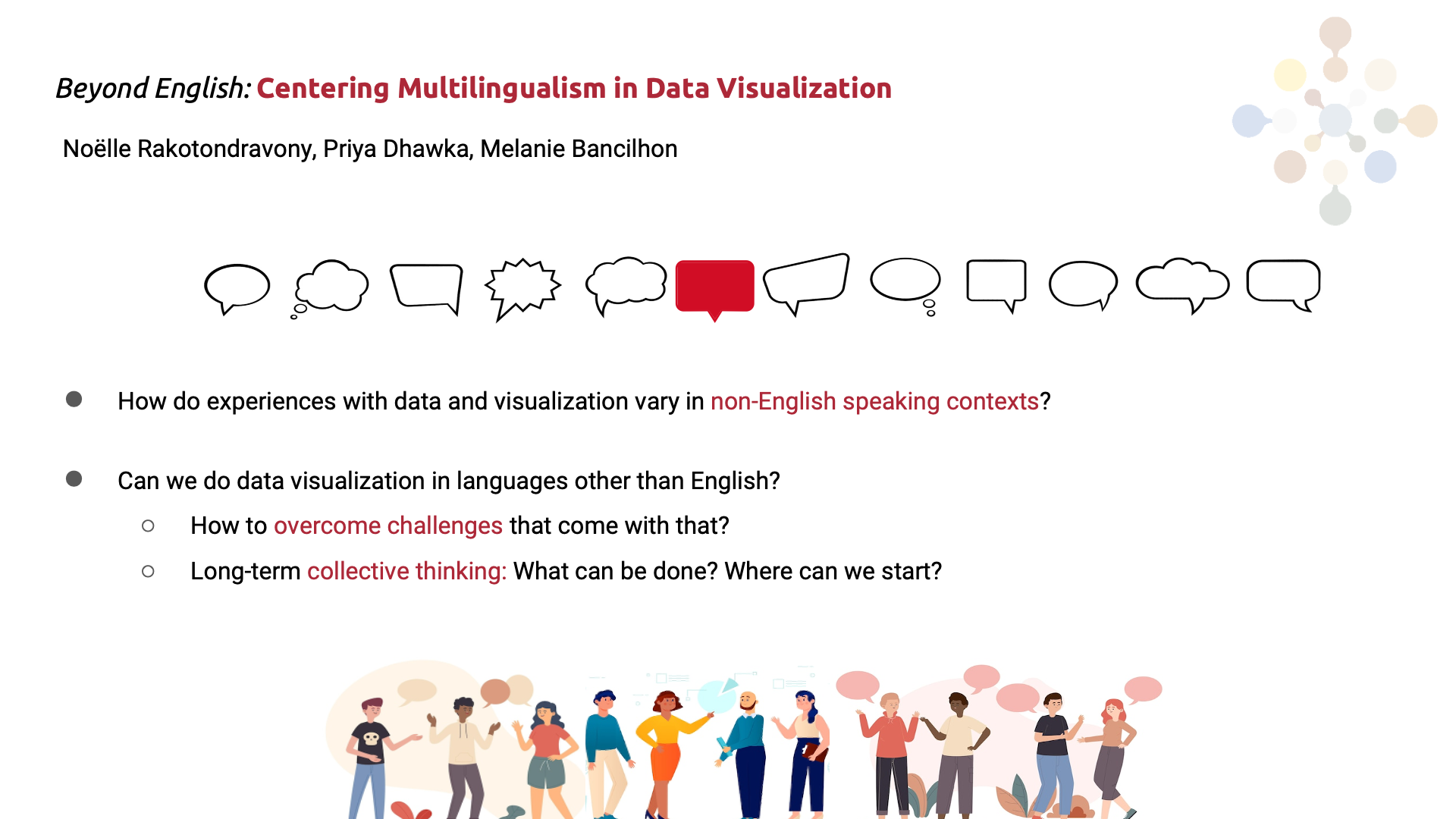Beyond English: Centering Multilingualism in Data Visualization
Noëlle Rakotondravony, Priya Dhawka, Melanie Bancilhon
Room: 105
2023-10-22T22:00:00ZGMT-0600Change your timezone on the schedule page
2023-10-22T22:00:00Z

Fast forward
Full Video
Abstract
Information visualization and natural language are intricately linked. However, the majority of research and relevant work in information and data visualization (and human-computer interaction) involve English-speaking populations as both researchers and participants, are published in English, and are presented predominantly at English-speaking venues. Although several solutions can be proposed such as translating English texts in visualization to other languages, there is little research that looks at the intersection of data visualization and different languages, and the implications that current visualization practices have on non-English speaking communities. In this position paper, we argue that linguistically diverse communities abound beyond the English-speaking world and offer a richness of experiences for the visualization research community to engage with. Through a case study of how two non-English languages interplay with data visualization reasoning in Madagascar, we describe how monolingualism in data visualization impacts the experiences of underrepresented populations and emphasize potential harm to these communities. Lastly, we raise several questions towards advocating for more inclusive visualization practices that center the diverse experiences of linguistically underrepresented populations.